Written by Haider Geoanalyst; Originally appeared at TheSaker.is
Several sources in the past several days have analyzed the Iranian missile strikes on US forces at the Ayn Al Asad Airbase which took place more than two weeks ago on the 8th of January 2020 as a retaliation for the US assassination of the Iranian general Qassem Sulaimani. The reports have focused on several topics and methods ranging from satellite image interpretation, videos of missile launches and incoming missile strikes to analysis of on-site photos of (unexploded) Iranian missiles in and around the targeted airbases in Iraq.
In this analysis we will look closer at the satellite imagery to give us more insight on what happened at the Ayn Al Asad Airbase and to help us answer some questions like what kind of missiles did the Iranians use, what kind of targets did the Iranians aim for (or destroy) and what kind of information can we derive in terms of accuracy of the Iranian missiles.
It is clear, even prior to conducting any analysis, that the Iranian missiles obviously targeted individual structures with a high rate of accuracy. In this analysis we look at accuracy in terms of how far the missiles landed from their targets. Since the Iranians did not make public the targets they wanted to hit or destroy, we will have to assume that the individual missiles were targeting the actual structures they destroyed or the nearest structures to their impact locations. Another possibility is that the Iranians deliberately struck areas near or outside some of the targets. We will consider both scenarios.
A term often used in precision guided munitions (artillery shells, smart-bombs, missiles, etc.) is the circular error probability (CEP). This is when a circle is drawn around 50 % of the targets that land on a single aim point. This value is not derived from actual warfare statistics but from weapons testing or claims from the weapons manufacturer. Also important to note is that the CEP accuracy is tested by firing the same type of missile many times at a single target instead of directing the same type of missile at multiple independent targets. We will attempt to derive our own statistics from the small sample size of missile strikes at the airbase. This analysis is also a follow up on the very interesting article posted by The Saker which also assessed the initial satellite images made available online of the Ayn Al Asad Airbase strikes, see here https://thesaker.is/the-anglozionist-empire-vs-iran-a-discussion-of-the-recent-events/ .
As geospatial experts with experience in aerial and satellite image interpretation, our eyes are trained, through formal training, education and on the job experience, to look for patterns, colors and contrasts among many other techniques to describe and interpret what we are actually looking at. We also apply image classification techniques and manipulate remotely sensed data (orthophotos, multi-spectral, hyper-spectral, thermal, LiDAR, Radar, etc.) to capture more information in order to help us further interpret the situation. Most of us are specialized in a certain field within the spatial related sciences like forestry, energy, transport, geology, archeology or urban planning. I must mention that since I am not a trained expert in the intelligence or military field like several of my colleagues in this branch, there could be short comings in my analysis and in the used terminology. Having said that, I have been regularly interpreting military related imagery on and off in my free time in the past several years.
Introduction to Ayn Al Asad Airbase
The US occupation forces between 2003 and 2005 changed the name of the airbase from its original 1980s name of Qadisiyah Airbase to the name of Ayn Al Asad, which in Arabic literally either means “Eye of the Lion” or in this case “Lion spring” due to the hydrological spring which is now located within the perimeter of the airbase. This spring feeds the Wadi al Asadi stream valley located in the northern part of the air base and flows eastwards into the Euphrates River as one of its tributaries. The main part of the base originally had a perimeter length of 21 km, not including other secondary or auxiliary bases located in the surrounding areas. The perimeter was expanded by the Americans to 34 km (Figure 1), giving the base a total area size of approximately 63 km2 and making it the largest military base in Iraq by area size. For comparison, this is almost twice the size of the New York City metropolitan area.
Figure 1 Satellite imagery of the Ayn Al Asad Airbase with the original airbase perimeter in blue and the extended perimeter in red. The two paved runways are indicated by the light blue rectangles. (Sources: © HERE, DigitalGlobe, Navteq, Planet Labs Inc.)
The base consists of two major runways (a third runway is unpaved), several taxiways, a variety of different facilities and buildings for personnel, equipment, communications, including sports and leisure centers with theaters and swimming pools. The base further has soft and hardened aircraft shelters (hangars). The trapezoidal shaped hardened aircraft hangers were built by Yugoslavian companies across many bases in Iraq in the 80s and are nicknamed “Yugos” by the Iraqis. The two hardened runways have a length of approximately 3,990 m. This is almost 1 km shorter than Iraq’s longest aircraft runway of 4,800 m located at Erbil airport, which is also one of the longest in the world. For further historical and general information on the Ayn Al Asad Airbase, see the following websites here ( https://en.wikipedia.org/wiki/Al_Asad_Airbase ), here ( https://www.globalsecurity.org/military/world/iraq/al-asad.htm ) and here ( https://www.airforce-technology.com/projects/al-asad-airbase-iraq/ ).
Reports indicate that around 15 to 16 missiles were fired from multiple locations inside Iran, with at least 10 missiles fired from bases in the Kermanshah area. If this is indeed the case and assuming a straight line flight path, the missiles could have traveled a distance of approximately 425 km from Kermanshah until reaching the Ayn Al Asad Airbase (Figure 2).
Figure 2 Distance between Kermanshah and the Ayn Al Assad Airbase (Sources: National Geographic, Esri, Garmin, HERE, UNEP-WCMC, USGS, NASA, ESA, METI, NRCAN, GEBCO, NOAA, INCREMENT P, DigitalGlobe, Earthstar Geographics, CNES/Airbus DS, GeoEye, USDA FSA, USGS, Aerogrid, IGN, IGP, and the GIS User Community)
Airbase missile strike overview
In recent days, analysts have identified a total of nine separate missile impact strikes within the Ayn Al Assad Airbase perimeter. This does not exclude the possibility of other missile impact sites within the base’s perimeter which have not been identified or published online. Figure 3 shows the location of the nine impact sites which we will look at in more detail. Seven strikes (number 1 to 7) are found at the facilities located just above the northern taxiway and runway, which according to the imagery, houses a variety of drones and aircraft, including V-22 Ospreys, MQ-1 Predator drones, UH-60 Black Hawks and even (K)C-130 Hercules aircraft for transport and refueling. Another missile impact (number 8) is located on the taxiway between the two paved runways and impact number 9 is found on a taxiway in the southeastern complex of hardened aircraft hangars.
Figure 3 Satellite imagery of the Ayn Al Asad Airbase showing the nine missile strike locations where Iranian missiles landed. (Sources: Planet Labs Inc.)
Site number 1 and 2
Strikes number 1 and 2 are approximately 110 m apart. Crater impact nr. 1 is 28 m away from the destroyed soft non reinforced target (possibly a tent structure). Nr. 1 has a small circular blast followed by a secondary semi-circle pattern. The secondary pattern towards the west also gives away the eastern incoming missile direction. Impact nr. 1 is peculiar since it is not a direct hit, but landed 28 m next to the nearest structure. The question is if the Iranians intentionally targeted this point or is it an accuracy issue (off by 28 m) ? We can consider both scenarios for now and later discuss which is more likely when we compare other missile impact locations.
Strike nr. 2 has a similar sized crater and blast pattern as nr. 1 (approx. 27 to 28 m). So it is highly possible that both strikes were conducted using the same missile, with strike nr. 2 having a more obvious blast circle due to it landing exactly in the middle of a series of built soft structures (possible tents). From the measurements we can conclude that strike nr. 2 is more or less dead center on the 5 soft like tent structures and there is no substantial accuracy error.
Site number 3
Site nr. 3 contains two soft structures (possible tents). The missile’s crater and circular blast pattern is located almost in the center of the left building. We estimated that if this building was deliberately targeted, the error is no more than 3 m. For comparison, this is the average accuracy of a handheld GNSS (GPS) device or a current smartphone, which is very impressive for a warhead landing at more than 2000 km/h (terminal velocity).
Site number 4 and 5
Sites 4 and 5 are two building (soft structures) next to one-another each hit with what seems to be similar type of missiles with primary blast radius of 8 to 9 m and secondary circles of around 20 to 22 m. If we assume that the middle of buildings were targeted, we find accuracy errors of 6 and 14 m for site 4 and 5, respectively. Again, we do not know if the Iranians deliberately targeted a certain part of the structures.
Site number 6
Strike 6 is located on the left side of a long metal roof soft structure, similar to a steel open warehouse. The left half of the building shows a primary blast circle of approximately 17 m in radius, with an overall damage radius of approximately 25 m. If we assume that the center of the building was the actual target, then we find an error of 51 m. Again, the question is whether the left side of this building was deliberately struck instead of the central part. We speculate that it is likely that the Iranians intentionally targeted the western side of the building, having prior knowledge the blast radius of their missiles and the importance of the western side of the building.
Site number 7
Strike number 7 is the most easterly impact site and is found near the end of the northern runway. The impact is located almost exactly in the middle of four soft aircraft shelters. The post-strike image (taken a few hours after the event) shows V-22 Ospreys and MQ-1 predator drones parked just south of the shelters. The first circular blast pattern has a 15 m radius. The incoming direction of the missile caused the complete destruction of the adjacent shelter just left of the impact point, while the shelter to the right was lightly damaged. If we assume the Iranians were targeting the middle point of the second shelter (taken from left to right) than the accuracy error would be about 18 m. However, it is highly likely that the four soft shelters were targeted as a single unit. If that is the case, then the missile was only 7 m off (accuracy error) from the middle point.
Site number 8
If we assume that the Iranians are not randomly lobbing missiles inside the airbase with CEP errors of 100 to 500 m as some of the so called “think tank” experts presume (or have previously presumed in recent years), then we can assume that site nr. 8 was targeting the taxiway located between the two paved runways as previously shown in Figure 3. In the images below we can see an impact crater hitting the side of the taxiway. The impact is 23 m from the center of the taxiway pavement and we use this distance as a measure of accuracy. A clear circular blast pattern is visible and a directional blast cone indicates the incoming missile direction.
Site number 9
Strike nr. 9 is the second strike on a taxiway and is the most southern impact site situated in a hardened hangar complex. The impact crater is located almost exactly on one of the corner points of a paved T-junction. If the Iranians purposely targeted this exact point, then the accuracy error could possibly be no more than 2 meters. However, if the target was the actual center of the T-junction, then the error is approximately 11 m. Like in site nr. 8, we see a circular blast with a cone like fan shaped pattern giving the incoming missile direction.
Assessment and conclusions
There are different ways to assess the accuracy of these strikes based on the fact that we do not have the exact coordinates the Iranians wanted (intended) to target. It is not very realistic to assume that the Iranians were perfectly able to target the exact coordinates they intended to hit with perfect accuracy. There is however uncertainty in whether the Iranians intentionally missed some of their targets. We say “some” because our observations clearly show a pattern of very accurate strikes on individually targeted buildings/structures. So we have two most likely scenarios:
- The Iranians intentionally targeted and destroyed some targets. Accuracy errors occurred causing some missiles to miss the exact center point of their targets, with other targets being completely missed.
- The Iranians intentionally destroyed some targets and intentionally missed some others.
I personally believe that the Iranians had no reason to destroy entire series of tents and soft sheltered facilities, causing many injuries according to reports that have come out in recent days, while intentionally missing the taxiways. This would make the first scenario the most likely event.
The table below shows the estimated range in accuracy for each of the 9 strike locations based on our observations and interpretation. The green numbers are the most likely errors in meters, while red numbers indicating the less likely errors based on our assumptions of what the Iranians intended to target. We find an average missile target accuracy of 11 m that is based on what we assume are the most likely intended targets (or in other words the most likely scenario). The statistical spread of this small sample size (of only 9 strikes) is 8.5 m. So the lower and upper limits of the accuracy, based on the standard deviation, is estimated to range between 2.5 and 19.5 m. The median value, which is somewhat comparable to the CEP, is 7 m. This means that half of the strikes landed within 7 m. Finally, the average blast (damage) circle is estimated at 21 m.
So let’s visualize these numbers and assume (a big assumption by the way) that these numbers can be used in circles. The figure below shows a MQ-1 predator drone theoretically being targeted. The yellow line indicates the 11 m mean accuracy value. This is where missiles will land on average. The red line gives the 7 m median value where 50 % of the strikes are found inside this circle. The subsequent figure also includes examples of blast circle (average radius of 21 m) locations in respect to the target.
Assuming our estimation of the intended targets and measurements are realistic, an Iranian missile accuracy ranging on average between 2.5 and 19.5 m is very impressive to say the least and indicates the use of advanced terminal guidance technology (guiding a missile in its terminal phase). Reports have suggested that the Fateh-313 tactical short range ballistic missile (SRBM) was used in the Ayn Al Asad Airbase attack, with other reports suggesting that the Qiam 1 was also used in the attack, including on Erbil Airport. The Fateh-313 is an upgraded Fateh-110, with an increased missile range up to 500 km. Terminally guidance technologies could possibly have been combined, including inertial guidance systems (INS), GPS and possibly electro-optical guidance. Since I am not a military or weapons expert, and my knowledge on sensors is limited to remote sensing for image acquisition, I will leave this part of the assessment to experts like the Saker and his colleagues. I have to say that guiding projectiles traveling at three times the speed of sound within a few meters of their target is pretty amazing if not mind boggling. After all, it is not called “rocket science” for nothing!




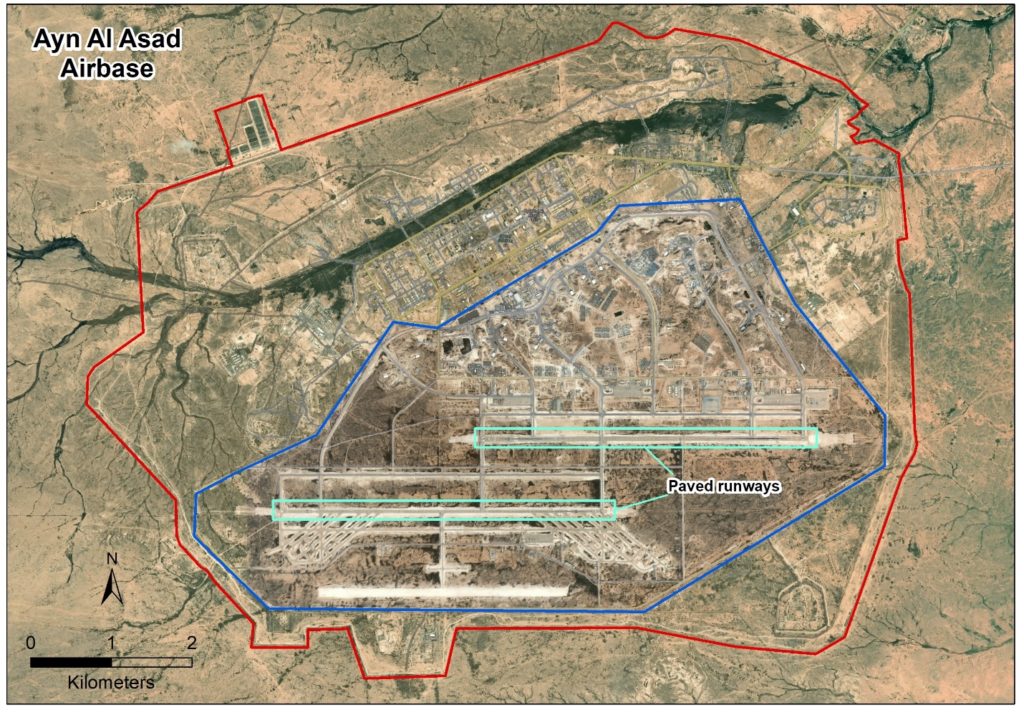
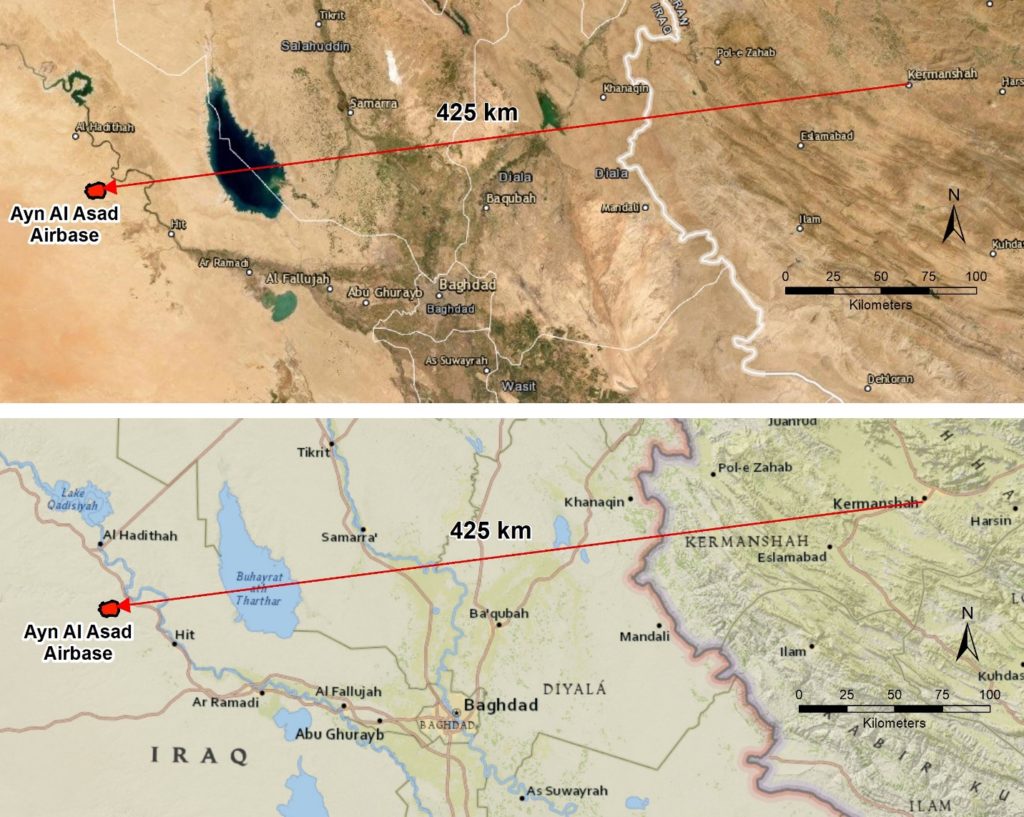
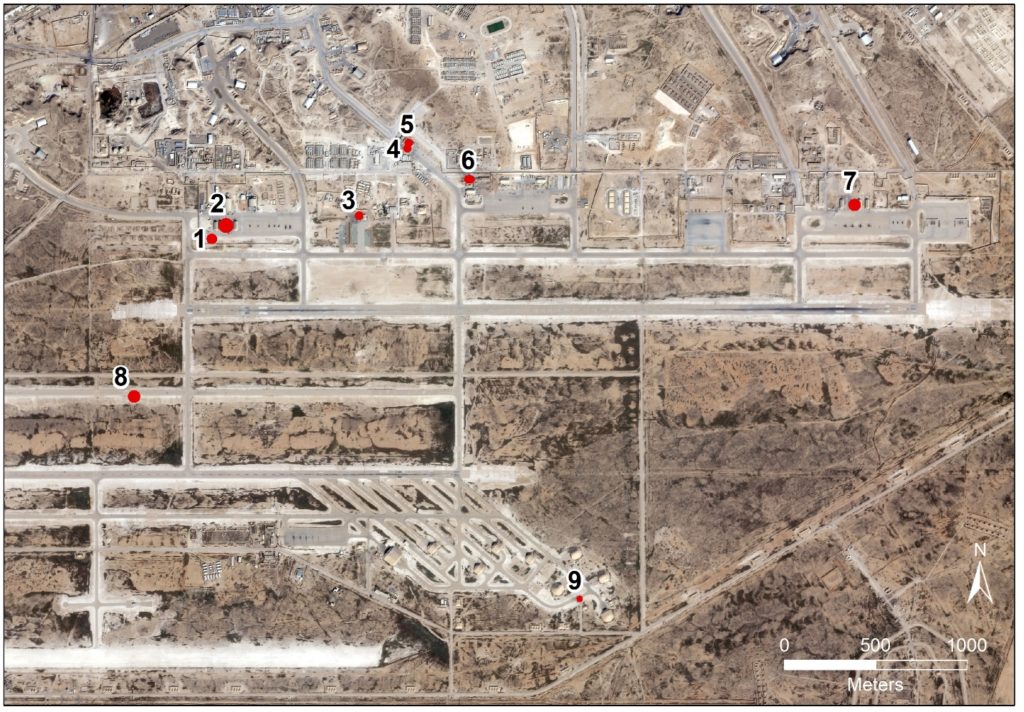
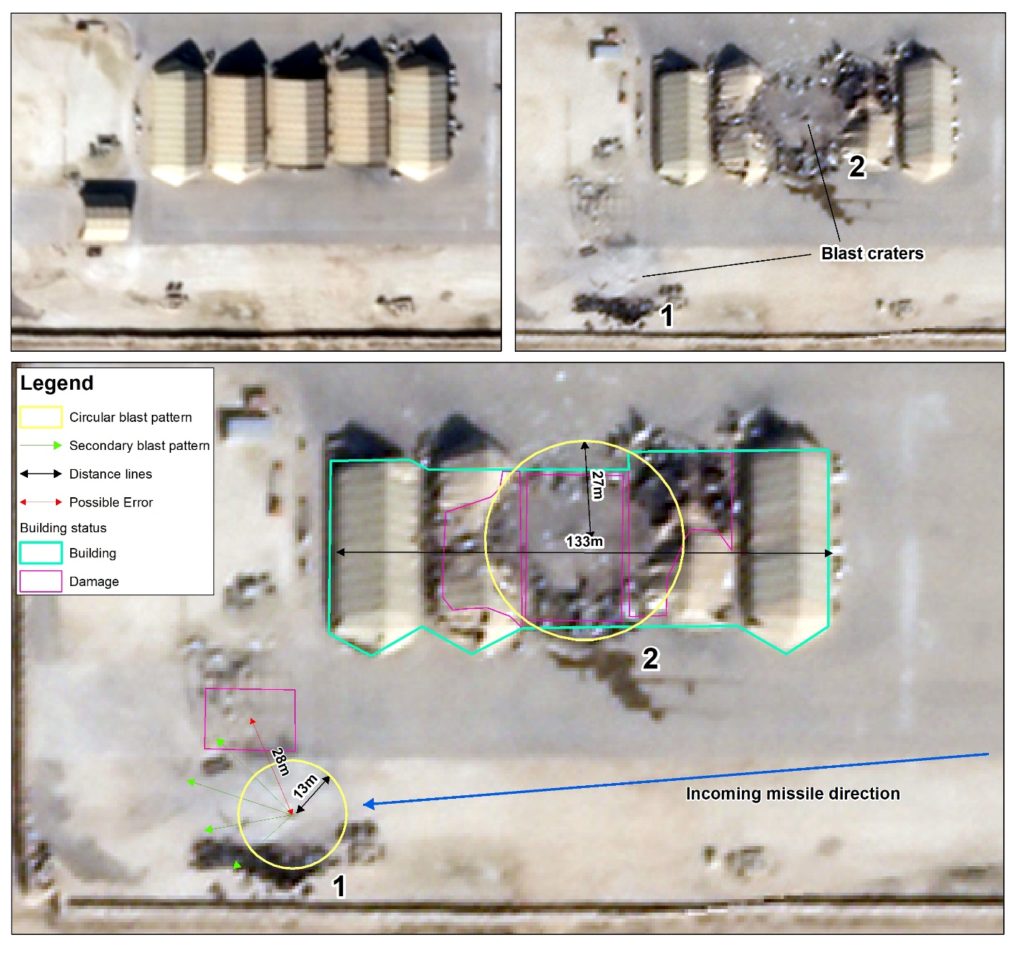
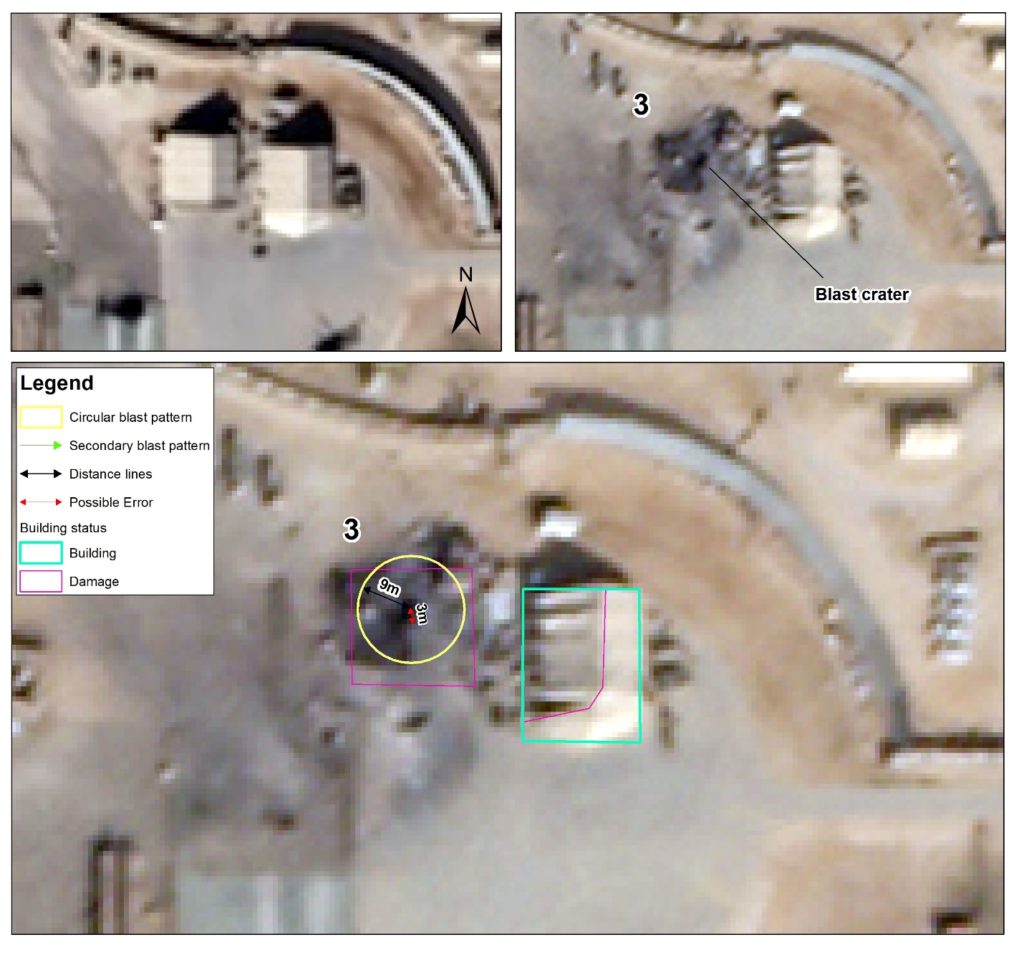
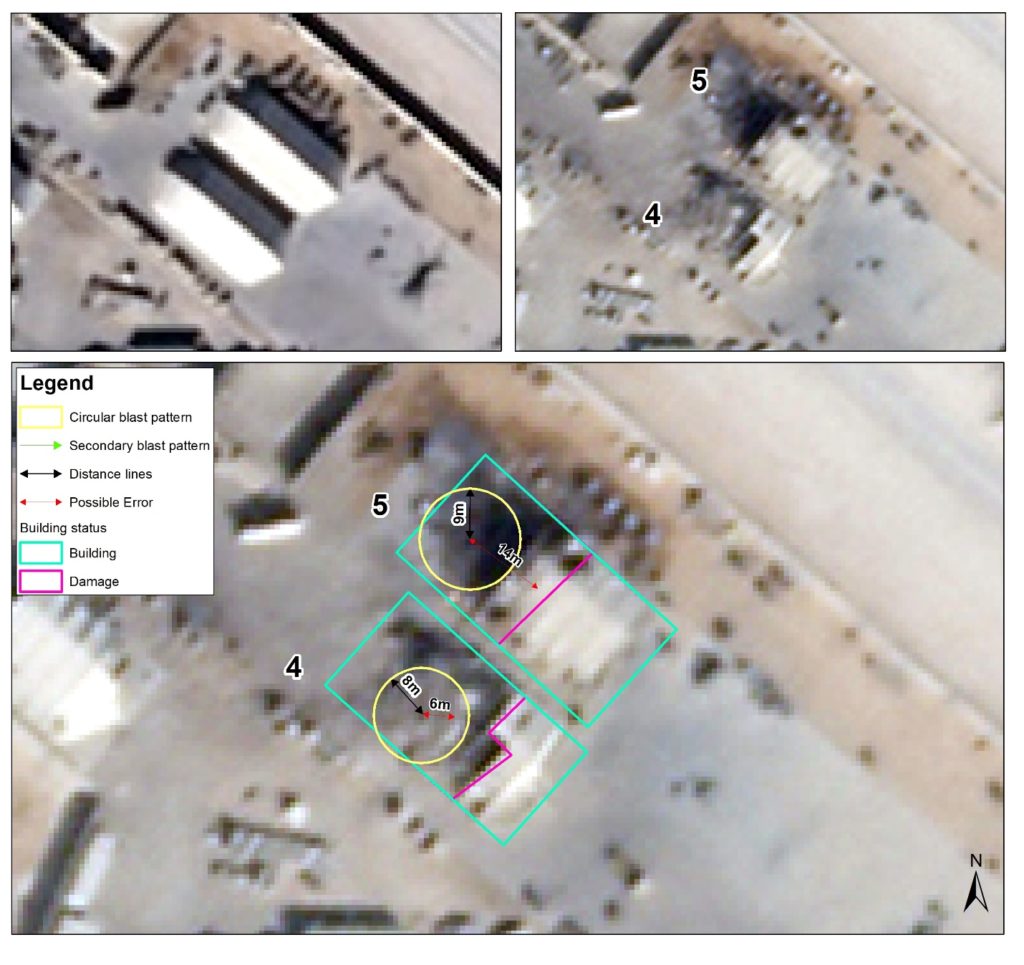
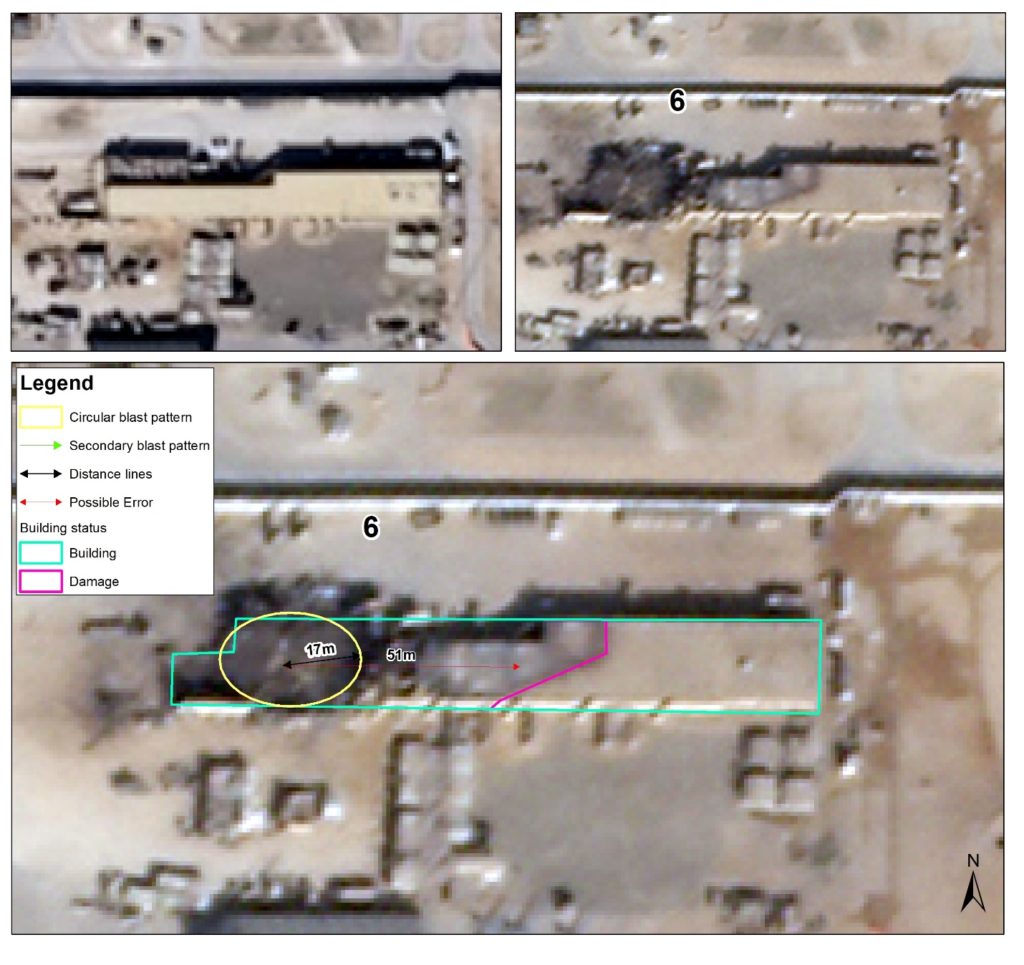
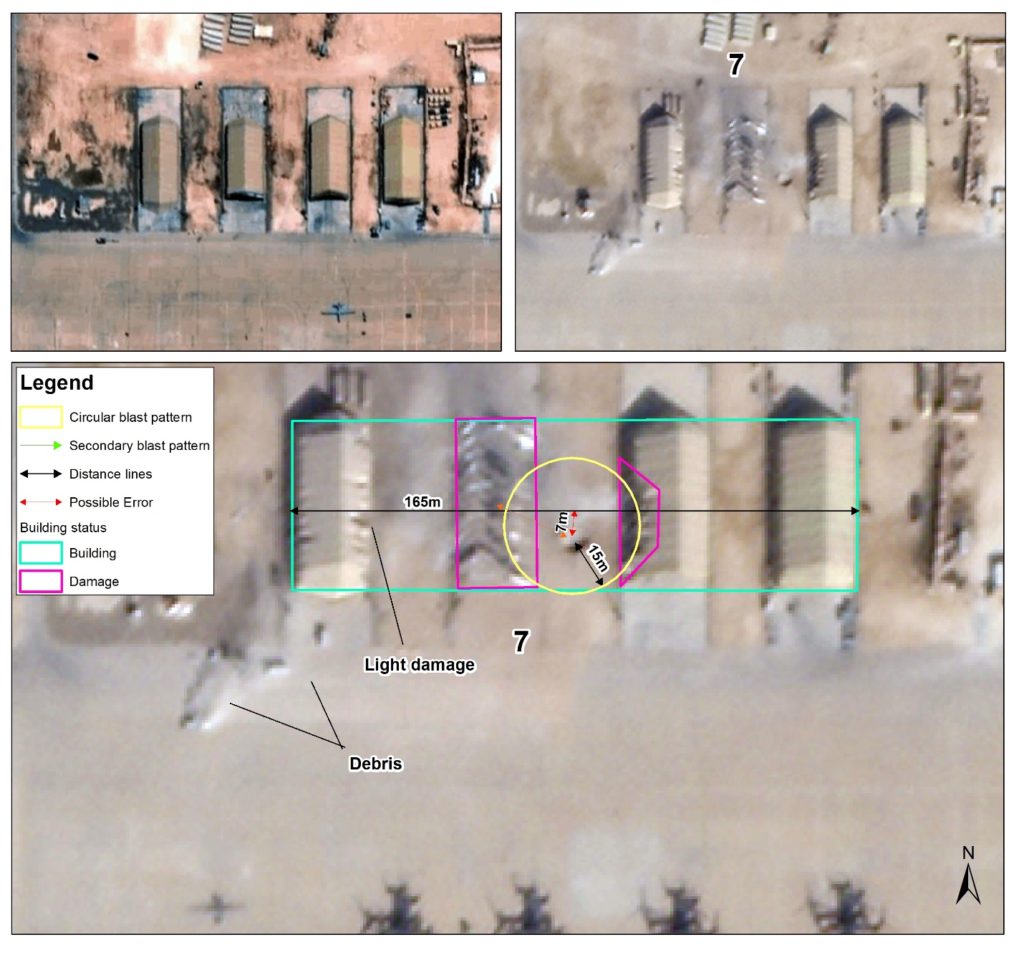
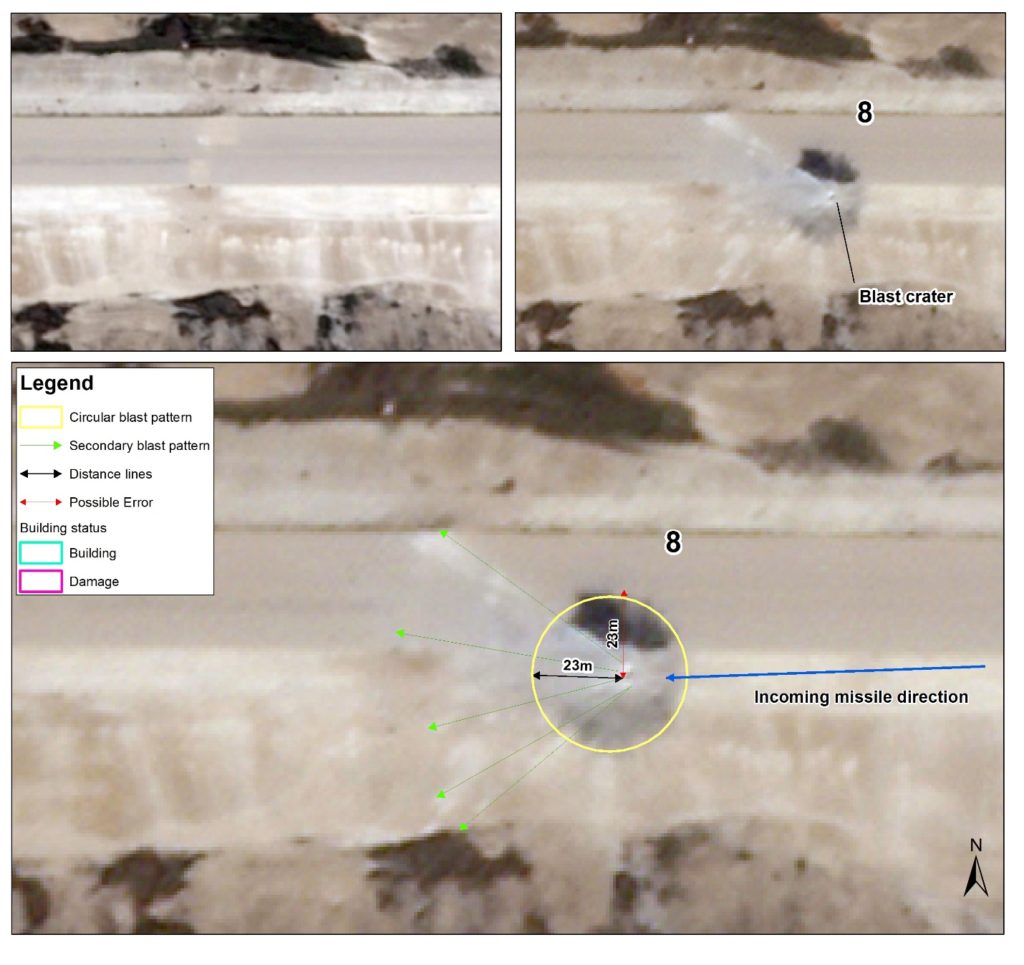
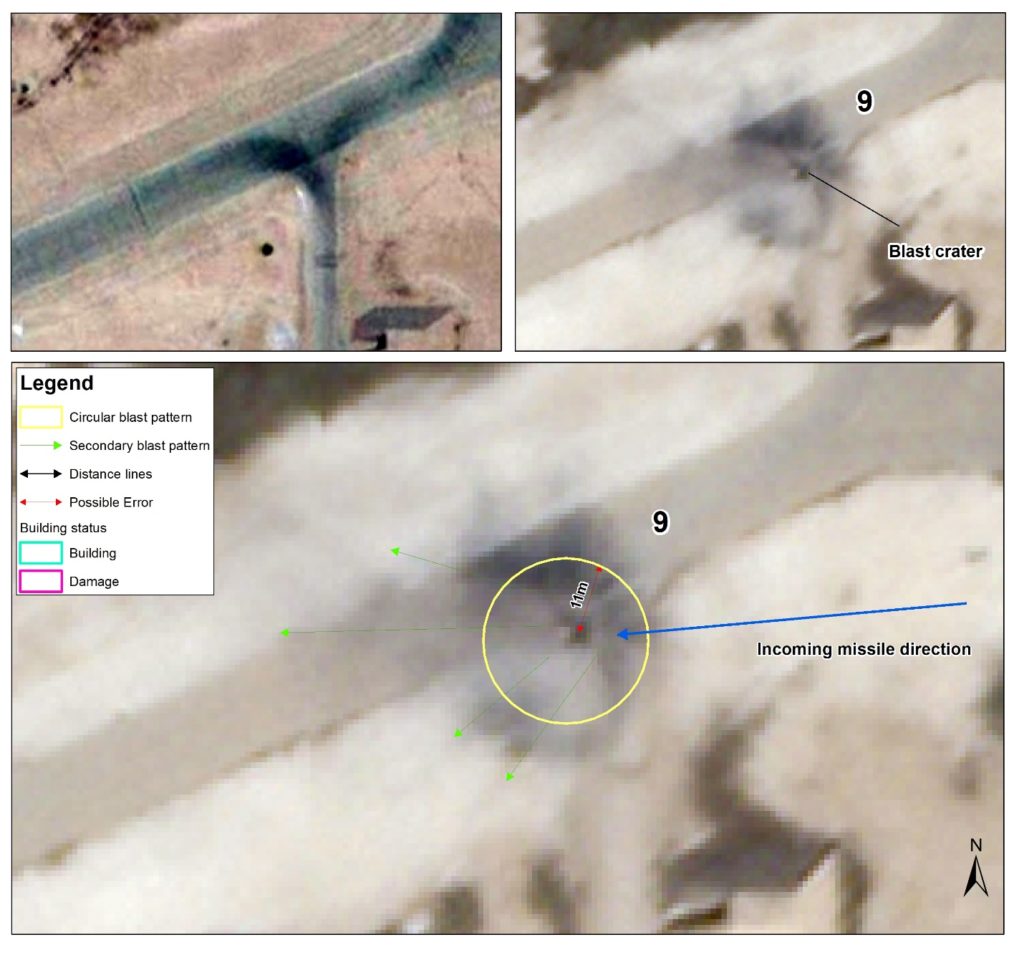
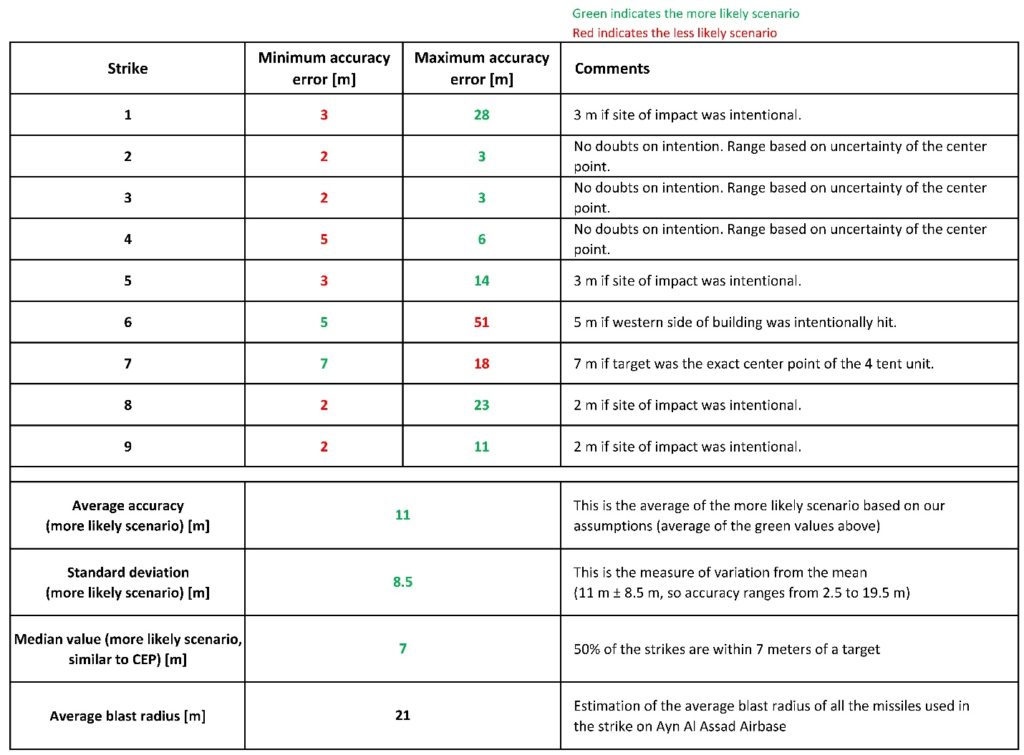
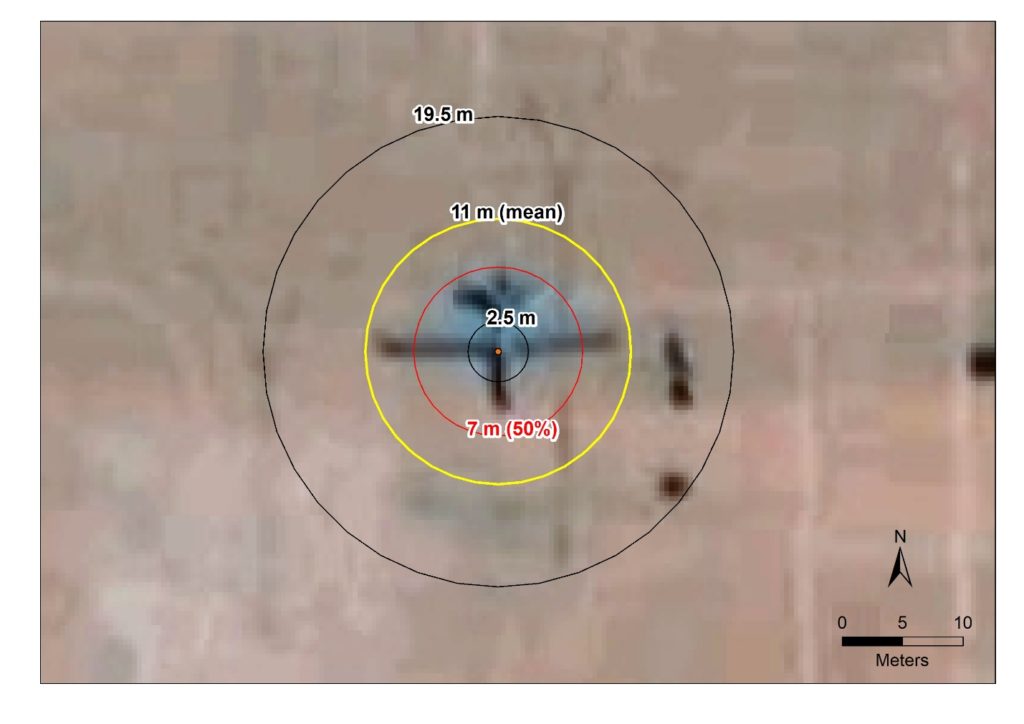
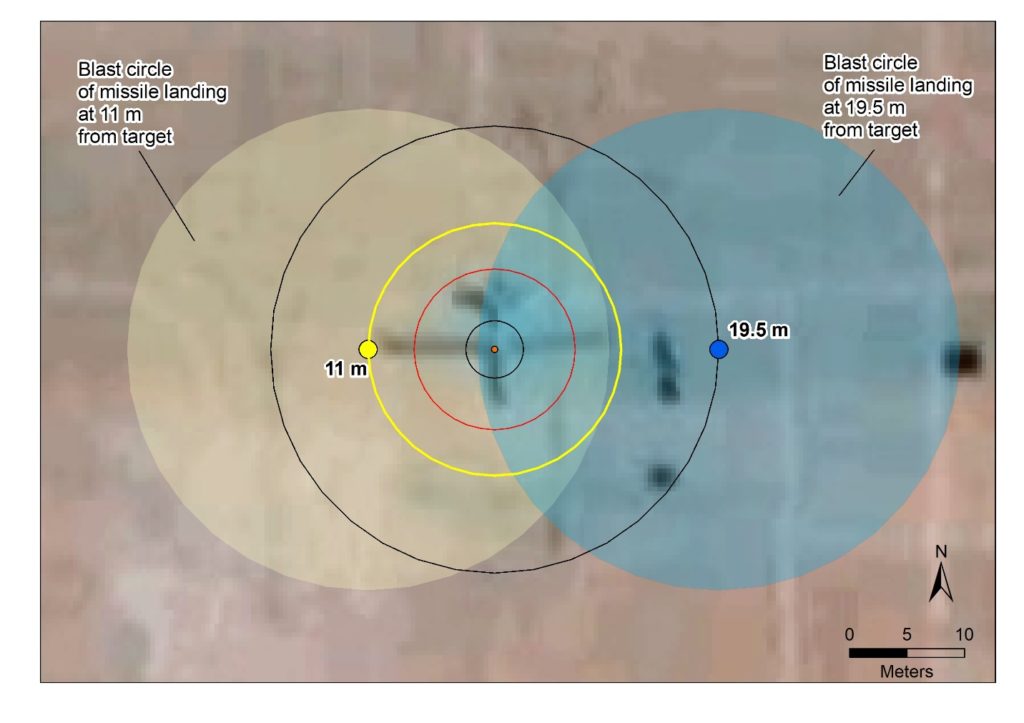
Asuming that te shown accuracy is now a fact in Iranian missiles, US should be more scared then before, as they were of the opinion, that Iran has close to none accurate striking capability. Looking around Iran for US installtations in reach for a concerted attack, e.g. Bahrain or Qatar hubs, UAE Al Dhafra airbase or even Diego Garcia would be a very costly experience for US.
Just 22 missiles with an average 1 ton HE payload caused this mayhem with 95% accuracy as I had posted the first day. Iran has close to a million missiles and rockets, Hezbollah alone now boasts 150,000 missiles and rockets and most now are precision munitions with a targeting radius accuracy of 1 to 10 meters. The Zionist scum will cease to exist and the Americunt cowardly lardass motherfuckers are about to have many more brain injuries, believe me!
It is a distinct possibility that the US military boys and girls from the airbase do not have any brain injuries , and that the doctors have just discovered that their brains were always maladjusted? :)
Don’t mean to lecture you but when I saw them interviewed by CNN, they were kids. They weren’t the Ed Gallagher types. It reminded me that the wrong people will pay the price in a war on both sides.
The ‘big kids ‘ legged it, leaving behind the ‘Trumper Youth’ to face the retaliation for the murder of General Soleimani ordered by Trump who was thousands of miles away acting tough :)
Always. Like the Uyghurs who got stuck in Idlib
A very informative piece Haider and presents a better understanding of the capabilities of the Iranian missile systems
Also 100% factual. Southfront reporting is now world class and they have very good analytical skills to sift through the vast mostly Jew garbage that is spouted on MSM. Fucking Americunts have the worst liars on earth.
GAS THE KIKES!
Well done SF seriously, your reporting is accurate and factual. I would add 95% missile accuracy and 100% brain damaged Americunt arseholes.
you dont have to be an arms specialist to recognize the pattern of the missile impacts. the targets were choosen carefully and far enough from each other to have the ability to study all deviations. the iranian missile forces could have used 50 missiles with cluster warheads to level the entire infrastructure of the base – if they had wanted so. but in this case, it was just a nice target practice in a real testbed environment) well done!
PS: i dont think they used full 1 ton payload on the missiles….
Also to calibrate their Russian supplied GLONASS targeting systems which performed like an expensive Swiss watch. Russians should also take great satisfaction at the accuracy of their weaponry and guidance systems. Iran’s attack on Americunt occupation forces also shows how precise missiles have become.
https://uploads.disquscdn.com/images/cea83ab8163a5eb1713856bfdab29fa1b109d70a34a0add5217de476647d6d09.jpg
possibly even the chinese wanted to test their BEIDOU :)
Yes, they all share data, R&D and experiences. I was reading that the Russians and Chinese also got intel bonanza from the Americunt E-11A shoot down in Ghazni as well and the lethal capability of the new generation of manpads that are lighter have long battery life upto 10 years and laser riding proximity fuses that even chaff and flares are useless.
Their tally of 50 injured is exactly what your initial analysis suggested right here on this site. That is impressive!!
Experience my friend. Lots of friends in high places LOL
‘And now 64…..They add up to 224 and more with time…Immediately after the attack this Israeli Jurno reported this and his Facebook along with his Twitter and Instagram pages were blocked…Just wait and see…The US IS HIDING SOMETHING BIG…Otherwise Trump would have bombed the cultural sites by now…https://sachtimes.com/en/world/224-injured-american-soldiers-transported-from-iraq-to-israel/
nah trump is told to sit on his hands and do nothing since every one knows that iran can take out saudi arabia’s ras tanura or uae loading facilities without much of a problem, close the hormuz strait and likely also the bab-el-mandeb strait in the south west corner of the saudi peninsula. and would that cause havoc of the world economy – yep you bet and the huge huge huge credit and derivative swap position of 670000 billion of open positions would go haywire – anyone thinks that the fed could negate such a cataclysmic event.
best is to terminate the illegal settlement calledmisrael and send the jews onto their disapora 2.0 which would save the peace in the middle east for a long time.
@ Zionism = EVIL
any infos regarding the Erbil base hitted by ~ 5 missiles?
I heard rumours the command centre was pulverized with many casualties (Mossad, Cia..?)
and also rumours of about 300 IDF stationed there..curious how many of them were hit
True that! Nobody is even mentioning that base even the media in general doesn’t even have satellite photos or any news relating to it!I bet that is where the true casualties are
Iran has changed the rules of war for ever. The most important takeaway from Iran’s strike is just how precise their short-range ballistic missiles are and there is no known defence against them. The accuracy revolution is real and no longer a monopoly of the loudmouth Americunt arsehole cowards. This has huge
implications for modern conflict and also is a huge confidence builder for military technological powerhouses like Russia, an ally of Iran which will take great satisfaction from the performance and data analysis of this game changer strike. Just imagine the type of damage Russia could do with its hypersonic weaponry. Iran is working on that too and will test within the next 5 years,
Yes, they are accurate. And this gives Iranians plenty of data for real life analysis. In tests on home ground you can always exaggerate the accuracy to the outsiders, but not when you are firing them at the enemy. This is really impressive!
Iran attacked taxiway to show that its accurate missile can stop flights..it means to take out of service an air base in case of massive attacks vs Ruways/Taxiways….
Good point.
Assessment and conclusion of the assessment and conclusion.
Iran hit 5 tents and 4 light structures used as storages plus 1 taxiway so we are not able to drive taxi in a couple of weeks.
A number of service members got a headache and thank Iran for a US paid sick leave a couple of weeks.
Western Science when it is best………………………..LOL.
Not certain where you are going with this, what else was Iran supposed to target?
The only alternative were the Saddam era bunkers where our soldiers were waiting out the storm (some irony in that) but that would have caused massive casualties. Tents, probably thin metal structures, are adequate for the climate for storing equipment. It’s not like we were storing rugs and it wasn’t random chance that they hit them. It was a demo and a good one at that.
Ayatollah Khamenei is a benign person, especially compared to his predecessor. I like him. I hope his successor is cut of the same cloth. With the Shia, everything can change with the next Ayatollah.
Agree with you re Khamenei. That’s why they hate him.
Strong honest personalities are hated in West because own rotten soul cant reach the level.
First 3/4 of the occupants of the base were Iraqi …. the US contingent, who are temporary occupants, were housed in tents and light steel structures. Only the US section of the base was targeted.
Second the Danes who were interviewed the day after the attack said there broken helicopters and aircraft all over the place but by the time CNN got there there was no sign of any damaged aircraft. Were the aircraft cleaned up or perhaps CNN was not allowed to report on the full extent of the damage due to security reasons? The military during wartime always minimize losses.
Third we know for sure a missile struck and destroyed the drone operations center, CNN reported that. And the Iranians said they targeted the drone hanger as a symbolic gesture. Perhaps this was strike #7 and there was a lot more damage than the US reported.
Think about this…IRAN HIT 2 BASES IN IRAQ….There is no single story or even photos about the other base ….WHAT REALLY HAPPENED THERE. I know one thing about American News reporting….FOCUS ON WHAT THEY ARE NOT SAYING! They are talking about this base here so much and how soldiers escaped but NOBODY has talked about the other base…I CAN BET THAT IS THE BASE WHERE THERE MUST BE DOZENS OF CASUALTIES
Picture evidence seems to indicate a substantial amount of very expensive equipment was destroyed.
you cant just lol your way out of this one not with a cep of 11 mtrs
Conclusions:
– The earlier prevailing belief that Iran is not capable of carrying out sophisticated strikes has been debunked.
– Given the fact that Iran has launched rockets into space, coupled with the proven ability to achieve precision guidance, it’s extremely likely they are also capable of long range guided strikes as well.
Questions:
– What does this say about the capability to carry large warheads?
– Given the massive loss of expensive military equipment from these strikes, will this force operating changes on US bases throughout the M.E? i.e will this incur an “Insurance Premium” or whatever the military equivalent of one is …
– Could this have been actor influencing the decision by the US not to send any more weapons to Iraq (i.e the fact that they can no longer be protected)
If they’d all been shot down by Patriots the story would be much different. The fact that they weren’t is the untold part of this attack. Patriots may be second class, but they’re not totally ineffective. There’s not any proof that they were even launched, let alone missed their targets. Why is an open question. Was it EW or something else? And if it was EW, whose EW was it? Most of it’s classified. But this part of the story hasn’t received enough attention.
Well, here’s the answer to why the Iranian missiles got through, there wasn’t any air defense. If this isn’t incompetence, I don’t know what is.
“The U.S. military did not have Patriots deployed at al-Asad airbase in Iraq, which houses American troops, during a Jan. 8 missile attack from Iran.”
– US seeking Iraq’s permission for missile defenses to protect troops –
this demo kind of proofs why the us and israel (in particular) are justifiable worried about the scenario of iran using syria and iraq as a forward missile launch base.
The fact that patriots were not launched could be that the u.s do not want to further expose the patriots shortcomings or maybe the us just granted the iranians a revenge on some buildings to let off some steam and avoid a further escalation, meanwhile the us could assess the accuracy of the iranian missiles in real world performance.
what, 50 to 80 personnel brought to hospitals in iraq or in the gulf states or israel or even as far away as germany. apparently after Iran left a warning directly with Iraq and with the swiss embassy in tehran, representing the disunited states of A. indicating that the patriot is of the same crappy standard as american automobiles are . just think dodge, ford or chevrolet – 20 years behind anything turned out in europe or asia. why would their patriot missiles be any better . think yemen and saudi arabia, what a friggin larf!
Best analysis I’ve seen to date! Considering that even up to 5-6 years ago people like Michael Elleman at IISS where going around charging money and telling Arabs that Iran’s missiles where so inaccurate that if they wanted to hit his office in Dubai (under 300km away) they would need to fire anywhere between 100-1000 missiles! One wonders if idiots like him are what influenced Trump’s……